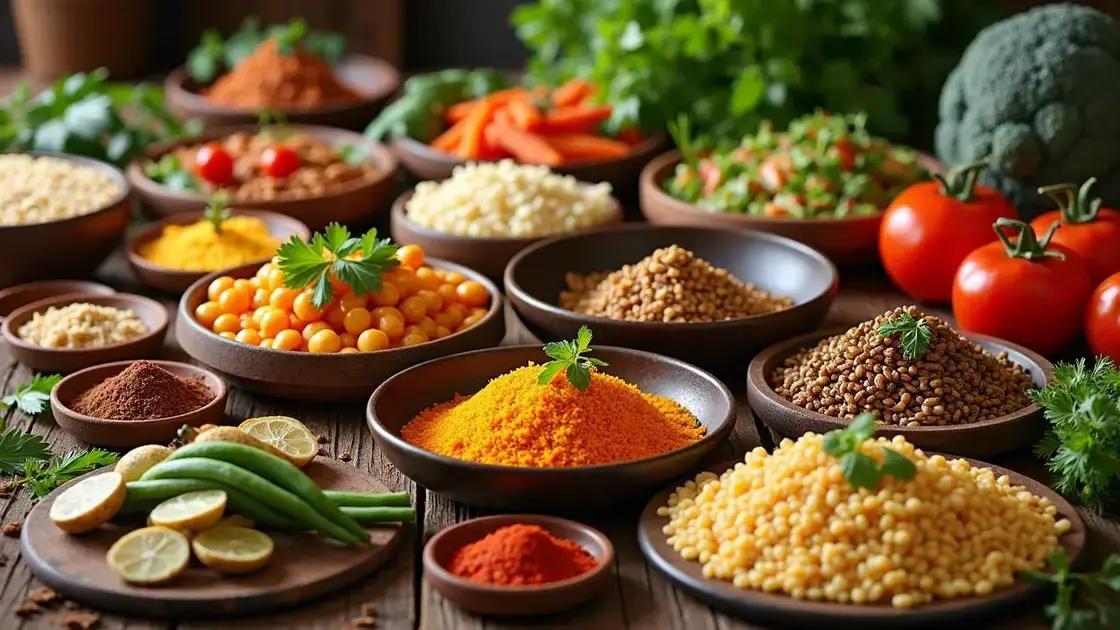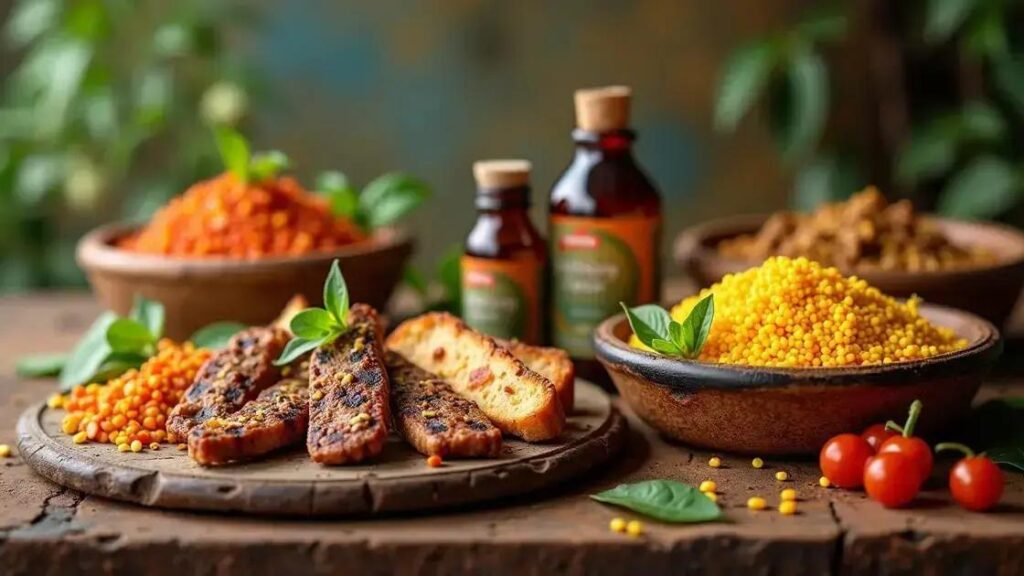Combining African recipes with supplements can be safe and beneficial if approached thoughtfully. Consulting healthcare professionals, understanding nutrient interactions, and prioritizing whole foods while carefully monitoring your body’s response are key to ensuring a healthy dietary balance.
Combining traditional African recipes with modern supplements has become a topic of interest for many. People are increasingly curious whether it’s safe to merge these culinary practices with nutritional enhancements. In this article, we’ll delve into understanding African recipes and their numerous health benefits, explore the role of supplements, and provide safety tips by consulting professionals.
Understanding African Recipes and Their Benefits

African recipes are deeply rooted in tradition and culture. They often emphasize the use of fresh, local ingredients full of nutrients. One of the key aspects of these recipes is their diversity, which varies from region to region, showcasing distinct flavors and health benefits. Common ingredients include grains, legumes, fruits, and vegetables, all contributing to a balanced diet.
Health Benefits of African Recipes
Many African recipes are created with health in mind. For instance, dishes that incorporate legumes are rich in protein and fiber, promoting healthy digestion and maintaining a healthy weight. Spices like ginger and turmeric, found in some recipes, possess anti-inflammatory properties that can enhance overall well-being.
Examples of Popular African Dishes
Some popular African dishes, such as Jollof rice, Injera, and Ugali, are not just delicious but also nutritious. These dishes provide essential nutrients that can complement one’s health. For example, Jollof rice is often made with tomatoes and bell peppers, offering vitamins A and C, while Injera is a good source of probiotics when made from fermented teff flour.
The Cultural Significance of Cooking
Cooking traditional African recipes also carries cultural significance, often being a communal activity that brings families together. Sharing meals builds connections and fosters a sense of belonging, enhancing psychological wellness. Understanding cooking methods and the significance of different dishes can empower individuals to appreciate their heritage and its nutritional aspects.
Conclusion
Overall, the benefits of African recipes extend beyond mere nourishment. They encompass cultural appreciation, community bonding, and a commitment to health that can be harmoniously combined with supplements for enhanced well-being.
Exploring the Role of Supplements

Supplements play an important role in enhancing health and well-being. Many people use them to fill nutritional gaps in their diets, especially when they may not get enough vitamins and minerals from food alone. Varieties of supplements include vitamins, minerals, herbs, and protein powders, each designed to support different aspects of health.
Common Types of Supplements
Some common supplements are vitamin D, which is essential for bone health; omega-3 fatty acids, known for their heart health benefits; and probiotics, which support gut health. Each type has unique effects on the body, enhancing the functions that may be lacking in one’s nutrition.
Benefits of Using Supplements
Using supplements can assist in achieving specific health goals. For example, athletes might use protein supplements to aid muscle recovery, while others may take multivitamins to ensure they meet daily nutrient requirements. Combining supplements with a balanced diet can potentially promote better health outcomes.
Choosing the Right Supplements
It’s crucial to choose high-quality supplements that are safe and effective. Look for reputable brands that provide third-party testing to ensure purity and potency. Additionally, understanding your own health needs through professional advice can greatly impact your selection.
Furthermore, supplements should not replace a balanced diet. They are intended to complement healthy eating, making it easier to reach nutrient goals without over-relying on manufactured products. Striking this balance ensures overall wellness.
Consulting Professionals: Safety Tips for Combinations

When considering the combination of African recipes with supplements, consulting with healthcare professionals is essential for safety. These experts can provide tailored advice based on individual health needs and dietary restrictions. Dietitians and nutritionists are particularly valuable resources for assessing nutritional needs and determining safe supplement use.
Key Safety Tips
Here are some important safety tips when combining African recipes with supplements:
- Consult Before Starting: Always talk to a healthcare provider before beginning any supplements, especially if you have existing health conditions.
- Check for Interactions: Some supplements can interact with medications or other supplements, leading to adverse effects. Make sure to disclose all supplements and medications you are taking.
- Monitor Your Body’s Reaction: Pay close attention to how your body responds after combining foods and supplements. If you notice any discomfort or unusual symptoms, seek advice promptly.
- Prioritize Whole Foods: Focus on obtaining nutrients from whole foods in African recipes. Supplements should complement, not replace, a balanced diet.
Document Your Diet
Keeping a food diary to track meals and supplements can be helpful. This record allows you to see what you are consuming and can be useful during consultations with healthcare professionals.
Educate Yourself
Take the time to learn about both African recipes and dietary supplements. Knowledge about specific nutrients and their sources can empower you to make informed choices about your diet and overall well-being.
Is It Safe to Combine African Recipes with Supplements?
Combining African recipes with dietary supplements can offer various benefits when done safely. Understanding the nutritional value of traditional dishes and the role of different supplements is crucial for maintaining optimal health.
By consulting with healthcare professionals and prioritizing whole foods, individuals can create a balanced approach to nutrition that supports their well-being. Furthermore, being mindful of potential interactions and monitoring your body’s response will contribute to a healthier lifestyle.
Overall, this thoughtful combination can enhance dietary habits, allowing individuals to appreciate the richness of African cuisine while maximizing the health benefits of supplements.
FAQ – Common Questions about Combining African Recipes and Supplements
Is it safe to combine African recipes with dietary supplements?
Yes, but it is essential to consult with healthcare professionals to ensure safety and avoid any potential interactions.
What are the benefits of African recipes?
African recipes typically highlight fresh, nutrient-rich ingredients that can improve overall health and well-being.
What types of supplements should I consider?
Consider multivitamins, omega-3 fatty acids, and probiotics, but always choose high-quality products and consult a healthcare provider.
How can I ensure my dietary choices are safe?
Consulting with a dietitian or nutritionist can provide personalized advice and help you monitor how your body responds to dietary combinations.
What should I do if I experience discomfort after combining foods?
If you feel any discomfort after combining African recipes with supplements, discontinue use and seek guidance from a healthcare professional.
Are there any specific supplements that go well with African cuisine?
Supplements like vitamin D and iron may complement traditional African dishes rich in certain nutrients, but consult a professional for tailored advice.













